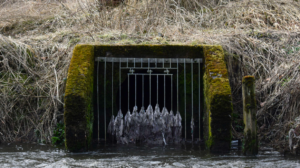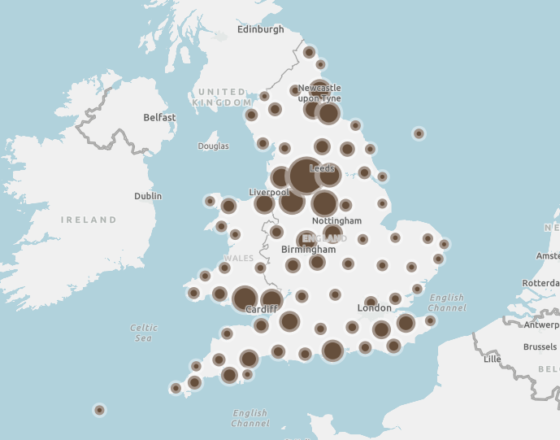
Waiver for part-treated sewage to be dumped into England’s waters

Sewage that has not been properly cleaned may be allowed to be dumped into rivers and the sea due to Brexit disruption.
In a regulatory position statement issued last week, the Environment Agency introduced a waiver that would mean some companies would not have to go through the third stage in the treatment of sewage if they did not have the right chemicals. Sewage treatment chemicals have been added to the list of products in short supply because of the UK’s lorry driver shortage.
According to The National, the waiver relates to a feared shortage of ferric sulphate, an acidic solution used to suppress the growth of algae, the Department for Environment, Food and Rural Affairs (DEFRA) says.
The temporary relaxation of the rules could last until the end of the year, with an extension possible. DEFRA says this will allow “discharges from water treatment works that cannot comply with permit conditions because of an unavoidable shortages of chemicals to treat effluent”.
Companies should “resume use of chemicals to treat effluent as soon as is practicable”, the Environment Agency says.
The government says the water supply to consumers will not be affected and any waste company that wished to make use of the waiver needed prior approval from DEFRA. The introduction of the regulatory position is to be seen as a precautionary measure.
The Chemical Business Association told The Guardian it has been warning prime minister Alexander Boris de Pfeffel Johnson, the transport secretary Grant Shapps, and the business secretary Kwasi Kwarteng, since June about the potential disruption in the supply of critical chemicals for the water and agriculture industry.
A recent survey of its members showed that 93% were experiencing haulage shortages, up from 61% in the first quarter of the year.
One of its concerns is that the driver shortage will be worse in the chemical industry because of the requirement for additional qualifications for anyone carrying hazardous substances.
“We are seeing a real crunch on the driver front,” Tim Doggett, the chief executive of the CBA, told The Guardian.
“My concern and what I have said to the Department for Transport this morning is the game of musical chairs we will see. If you have a driver faced with a job which means he doesn’t have to get out of his cab to deal with dangerous substances and one that gets paid the same and has to handle hazards and be specially qualified to do so, you know which job the driver will go for.”
Even without the waiver, water companies let raw sewage into English waters more than 400,000 times in 2020, Environment Agency data reveals.
The Guardian says one of the first complaints lodged with the post-Brexit environmental watchdog accuses the government and Ofwat of failing to enforce the law to stop water companies from routinely discharging raw sewage into rivers.
The office for environmental protection (OEP) is being asked to investigate why water companies have been able to continually fail to meet duties placed on them by law to treat sewage.
Lawyers for Salmon and Trout Conservation lodged the complaint with the OEP, whose role is to act as an independent to hold the government and public bodies to their commitments and environmental law.
The complaint says water companies have for 30 years had a legal duty – enforceable by the secretary of state and Ofwat – to “effectually drain sewers” and “effectually deal with sewage”.
But the charity said that despite the legal framework, water companies discharged raw sewage into rivers and coastal waters in England more than 400,000 times in 2020. The spills via combined sewer overflows lasted for 3.1m hours. Yet the overflows are supposed to be used only in extreme weather to relieve pressure in the sewage system.
“The law is clear and has been since 1991. What is missing is the strength of will within government to get this sorted,” Guy Linley-Adams, a solicitor for S&T Conservation, told the Guardian.
Data released by the Environment Agency in 2020 shows that sewage and wastewater discharges by water companies into rivers account for damage to 36% of water bodies. Only 14% of English rivers are of good ecological standard, a rating that suggests they are as close to their natural state as possible.
“In the absence of sufficient sewage treatment infrastructure and capacity, rivers have been asked to do that ‘treating’ instead, which has harmed many English rivers,” the complaint says.
The Rivers Trust has produced a map (pictured below) which shows where the sewerage network discharges treated effluent and overflows of untreated effluent and storm water into rivers. It’s also running various campaigns aimed at creating wild, healthy, natural rivers valued by their local communities. In addition its supporting a campaign to make reducing sewage pollution a legal requirement in the UK.
Main image also courtesy of The Rivers Trust.

